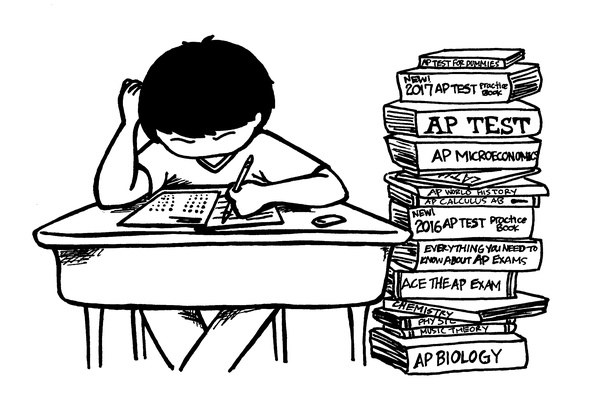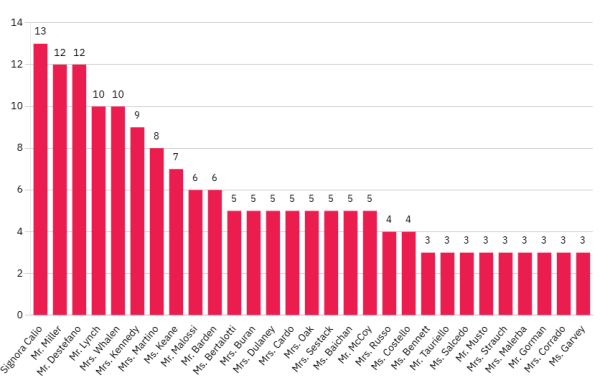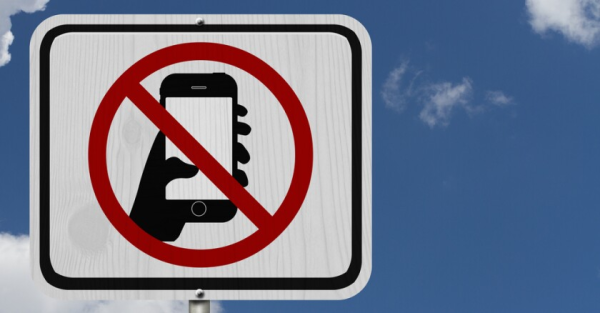To Take AP, or Not to Take AP? That is the Burning Question
“Ability to work on little sleep, stubbornness, and good time management.” These are some of the necessary qualities sophomore Elisa Baker thinks an AP student should possess. But what happens if you never acquire those characteristics—or any “AP student” qualities, for that matter?
“Well,” she added, “prepare to suffer.”
So, should students have to take a necessary AP assessment in order to take an AP class?
Currently, the school’s policy allows students to attempt any rigorous AP course—with the exception of AP Chemistry, which requires a prerequisite. However, in the past at BHS—and currently in many other districts—some AP classes required either written samples, SAT minimums, or teacher recommendations.
Last year, BHS sophomore Raechel Park wanted to take some AP courses; however, based on her performance the year before, she wasn’t permitted. Raechel said, “We shouldn’t test an individual’s knowledge on a written test. Instead, it’s better to see how they perform in a course. Taking the test makes students nervous and second-guess their choices, causing them to get a lower score.”
Here, Raechel touched upon a controversial topic: All students have strengths and weaknesses, but should these “Achilles’ heels” prevent us from challenging ourselves? Raechel added, “I don’t like the term ‘Advanced Placement,’ because it makes the students who are taking regular classes feel bad about themselves.”
Junior Samantha Santos, who attended St. John The Baptist before transferring to Bethpage High School, pointed out that her former school required students to take an assessment in order to be approved for that class—they must have received a 90 or above. Sam felt that although it was harsh, it helped remove students who weren’t up to the challenge.
While this reporter understands Sam and Raechel’s point of view, Elisa has brought another option to the table. She said “students should take a mandatory assessment for his/her individual evaluation.” However, she said, “I don’t think if you fail you shouldn’t be permitted to take the class.”
This reporter loved this idea, because it allows indecisive students to make a better decision.
Mr. Whittemore, an AP teacher at BHS, is “a big believer in putting kids in the right classes. Our job is not only to teach, but to help put them in the right spots. As much as you want to take a class… you have to do what’s right for you academically.”
In addition, Mr. Whittemore suggested the decision to enroll in an AP class should be based on teacher recommendations, instead of any assessments or the student’s choice. He revealed that here at BHS, “there is a push for the AP classes because the school gets to record how many kids take the test. It’s a big honor for them to say, they have ‘x’ amount of kids taking it…”
So, does BHS pressure students to take AP classes for the reputation benefits rather than the benefits for the individual student?
Mr. Tocco, the AP director that deals with the scheduling of assignments, feels that it’s great that our current open-door policy allows students to challenge themselves. However, BHS does take in consideration grades, previous assessments, and teacher recommendations. Mr. Tocco then addressed that some students go in for the wrong reasons, such as parent/peer pressure or other factors. However, he said, “…in the end, it all balances out.”
So, there is ultimately some debate about the AP entrance policy. Where do you stand?
Mr. Whittemore left The Eagle’s Cry with this: “I don’t think a test should define anyone. I would more heavily rely on a teacher recommendation. Teachers spend 180 days with the students and can evaluate the students’ work. Therefore, it would be more reliable than any sort of a test. I want to challenge as many kids as possible, but, at the same time, my goal is to put them in the proper learning environment.”
Anastasija Petrovska, often referred to as Ana, is a sophomore at Bethpage. She is Macedonian, born and raised in Queens, and moved to Long Island a year...










